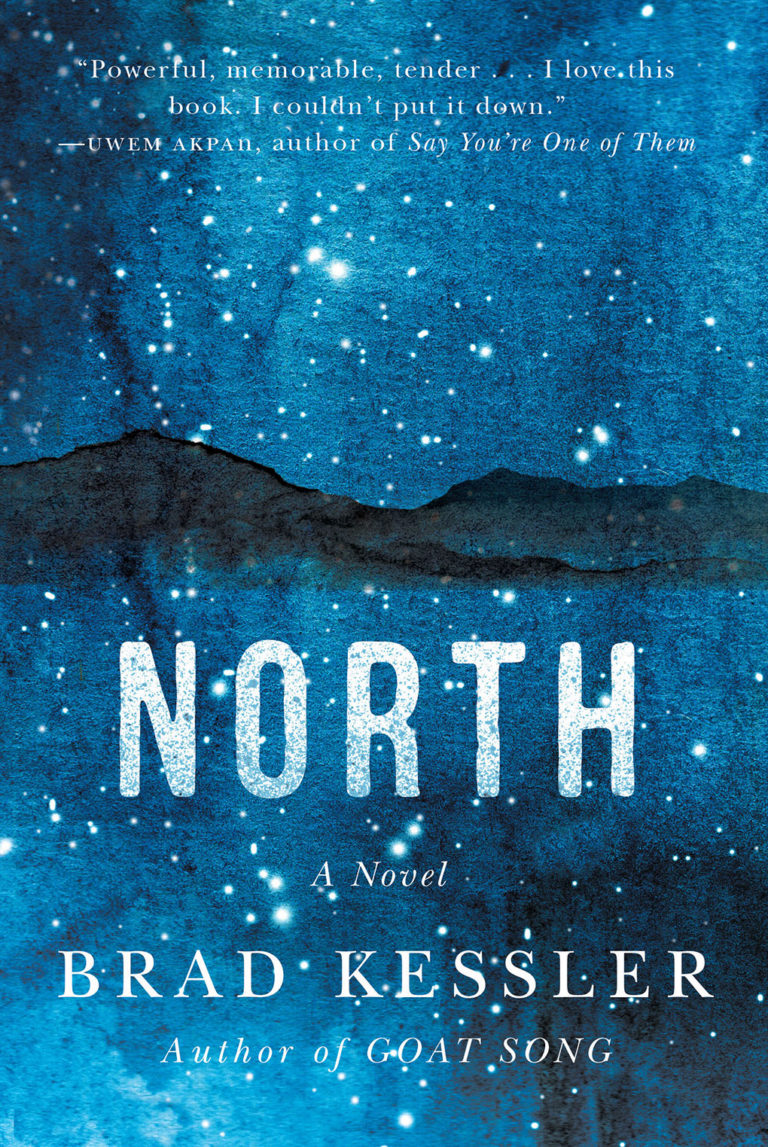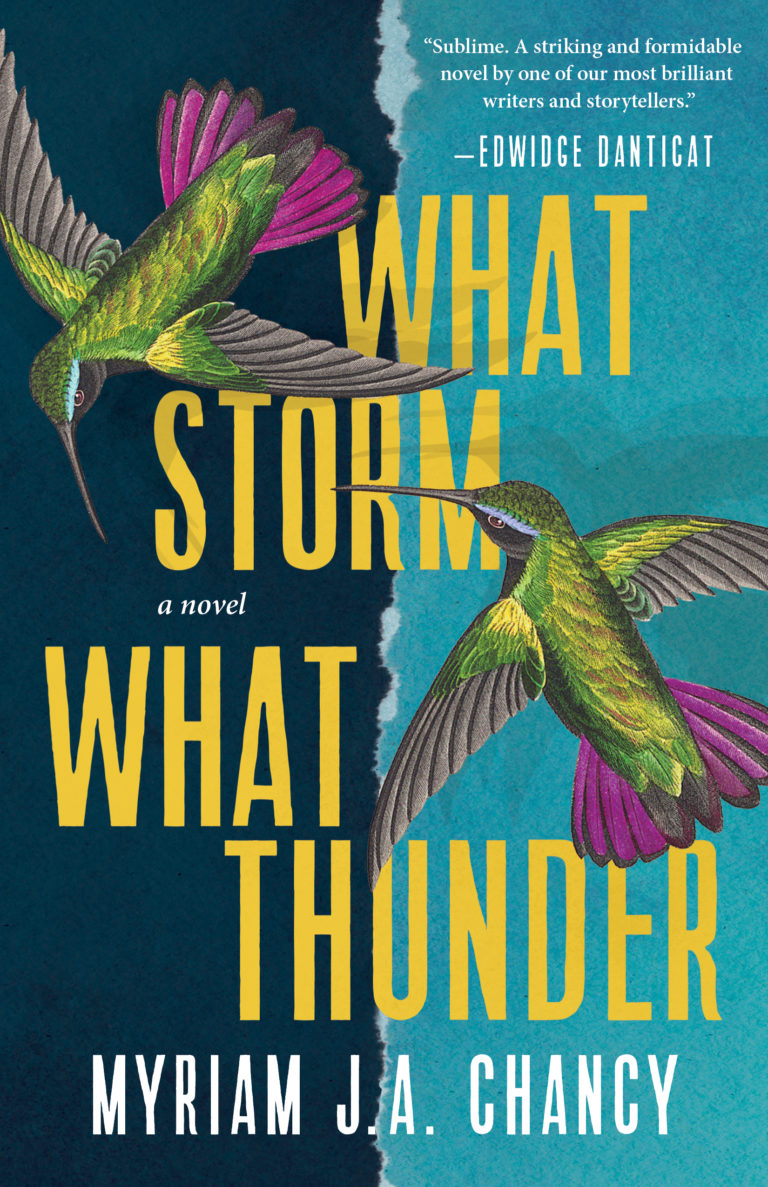“As a kid, all I thought about was death. But you can’t tell your parents that.”
— Maurice Sendak
The Players
Barrett
Grandfather Chandler says God made only two kinds of bloodweed: the stiff grass with greenish-purple flowers that grows wild in the ditches hereabouts, and what he calls “the true bloodweed” with tiny scarlet or magenta blossoms that fill the family graveyard, on the ridge behind the house we live in. Grandfather says that he has never found a book on botany or medicine or natural pharmaceuticals, or even books on alchemy and magic, that describe our private cemetery bloodweed; he thinks the plant must grow nowhere else but here, and that from its habits–imagine a plant having habits! Ronnie says–it must confine itself within the boundary made by the fence that encloses the family gravesites. The fence is made of granite posts with holes bored in them so that a double row of black pipe fits through them, and the entrance is a black cast-iron gate with a double latch. Grandfather says that the very idea of so heavy a fence is enough to keep the spirits of all the generations of dead Chandlers safely confined. He says that probably that same idea keeps the bloodweed in its place, underscoring the force of habit.
Sometimes Ronnie and I play in the bloodweed. In late summer and early fall the tiny flowers are so numerous, they are like an enormous soft blanket that fills the spaces among the headstones. The blossoms are so thick, and their stems so stiff, that it’s possible for a small person–for children like Veronica and me–to disappear under the bloodweed and pop up who knows where into the daylight. Hide and Seek, you might call the game we play. We call it Smother.
When Ronnie is hiding, I try to guess which headstone she’ll appear beside; will it be by Seth, or Agatha, or Florence Agnes, or Japheth–all family names that seem so ancient to us, we can’t imagine them belonging to real men and women. I suppose that’s why we’re not afraid of the graveyard: that the people named here aren’t real, and so none of them is really dead. Inside this fence, death is make-believe.
Veronica
I was the one who taught Barrett the game of Smother. Being a boy, he’d never have thought it up by himself. He hasn’t the intelligence to see that what is possible in one place can be applied to another place, and that’s because he hasn’t learned spatial relationships, how the game of Hide and Seek, which is played in vertical space, can become Smother, the same game–or a similar one–played in horizontal space. The only other game he knows is War, and all he needs for that is pencil and paper so he can draw his armies. In my opinion, he’s a two-dimensional child.
That’s why Barrett is happy to be home-schooled, even though we don’t have any playmates except each other, and we don’t get days off from classes even if it snows three feet and the roads don’t get plowed for a week. What goes on outside Barrett’s head doesn’t have very much connection to what’s inside it, which is like saying he lives in a world of his own that doesn’t make room for anybody else. Except sometimes it makes room for me–but I’m his sister, so that hardly counts. Oh, and the cat we used to have–Mister Grey. Mister Grey was a smoky-gray tom with a torn ear, and Barrett loved him half to death, until one day the cat disappeared. He tried to blame me for driving him away. It’s true that I don’t like cats, but I was perfectly okay with Mister Grey, partly because he used to play the game with us.
It’s funny under the bloodweed–funny and a little scary. In summer the flowers are so dense and thick that when I’m hiding under them they’re like a blanket or a canvas sail cover. There’s no real light, only a pale red haze where the blossoms have tinted the air, and I’m breathing something heavy and humid and smelling like the sea at low tide flavored with the perfume that lingers after one of Mum and Daddy’s Sunday night parties–what they call their soirées. It’s not a suffocating place, as long as I know I don’t have to stay here forever, though occasionally Barrett is so slow to find me, I begin to think I know what eternity feels like.
Herald
In the beginning I thought the wisest thing was to eliminate the bloodweed. It wasn’t attractive, though Marianne once tried keeping pots of it on the sunporch-cum-nursery–God knows why–and it was practically taking over our family’s modest cemetery. I didn’t have any idea how deeply it might be rooted, and I suppose I was afraid of what it might do; I couldn’t quite stop imagining the plants entwining themselves around the old coffins, which after all were probably only made of pine, and somehow insinuating their tendrils under the lids and prying open our ancestors’ final resting places. Talk about interrupted sleep! And even if the roots didn’t reach that far below ground, there was still the problem of the vines overrunning the gravestones, covering up names. It was almost as if Nature were trying to obliterate the very memory of all the generations of Chandlers who’ve preceded us.
But getting rid of the stuff wasn’t as easy as I thought it would be. First off, I couldn’t find an herbicide that could do the job. I suppose old Harley Dobbs at the hardware store in the village put me on to half-a-dozen different weed killers, one brand at a time, and none of them worked. I mean, no poison could touch that bloodweed. It was as if I was spraying Miracle-Gro instead of herbicide; the plant just seemed to shift into some kind of botanical overdrive and spread faster and thicker than ever.
Then I decided I’d have to resort to good old-fashioned elbow grease. I remembered I’d recently seen in the toolshed behind the garage an old machete my great-grandfather had brought home from the Spanish-American War. He’d been sent to Cuba, and I suppose he’d picked it up from some peon who worked in the sugar-cane fields. I don’t believe it was a military weapon, though it would have made a good one.
I found the blade right off, half-hidden behind a pair of cross-country skis Marianne bought a couple of years ago when she was determined not to let the winter keep her from getting her regular exercise. It was pretty rusty, and the edge of the blade looked in dire need of sharpening, so I spent the better part of a Sunday afternoon oiling and wiping and honing until the machete shone like brand new. Watch out, bloodweed, I said to myself, and the next morning, bright and early, I trotted up to the family plot and started in.
I tell you what: the weed war didn’t go the way I expected it to. I waded into that bloodweed with my refurbished machete, wielding it with a ferocity never seen in a Cuban cane field. I hacked to left and right, right and left, and by the end of the day I’d uncovered every Chandler ancestor’s headstone and plinth and marble angel. The bloodweed lay all about, going black in the setting sun. I was a tired and happy man.
The next morning, it was as if I’d never lifted a finger in anger against Nature. The bloodweed was as before: all around, all over, in every crack and crevice of every piece of granite and marble and alabaster, as red as its namesake blood and as thick as Georgia kudzu. But I persisted; for days I hacked and hewed, and every morning I had to begin again. Finally, I surrendered.
The machete is back in its place behind the skis, accruing new rust; I lounge in my easy chair and enjoy orange juice in the a.m., a cocktail in the p.m.; the bloodweed flourishes in its graveyard setting. In winter it sleeps, uncovers the markers that bear the names of our Chandler forebears, and turns gray as ashes. In spring it bursts forth, reborn and invulnerable.
Marianne
The first time I looked closely at the bloodweed that grew in the Chandler family graveyard was when Barrett was four or four and a half. He had brought me great handfuls of it, and I didn’t have the heart to tell a little boy that the flowers he was giving me were only weeds. I divided them into two clay pots on the sunporch, kissed Barrett on the forehead, and praised him for being such a thoughtful child.
It was a plant I had never seen before; none of my gardening books showed anything remotely like it. But weed or not, its flowers were pretty: tiny and many-petaled, ranging in color all the way from deep magenta to an exquisitely pale pink; and they gave off an interesting perfume, a scent as sharp as roses but more delicate, like the difference between opera and operetta.
Unfortunately, the color and scent didn’t last. It couldn’t have been more than three or four hours later, when I went out to the sunporch to water the other plants, that I noticed the bloodweed flowers had faded to gray, the leaves had turned black, and the plants seemed to have shriveled into themselves. I had never seen anything die so quickly, and it made me wonder if I was at fault—if I must have whatever the opposite for “a green thumb” might be.
I wasn’t sure what I should do with the dead plants. I couldn’t keep them in the house, to rot away to nothing, but I couldn’t just throw them out where Barrett might see them and wonder if his mother was rejecting him in some obscure way. Finally, for better or worse, I carried the two pots out to the back yard, behind a hedge of barberry where the dead plants would be invisible, and simply dumped them. I didn’t know what to tell Barrett about the disappearance of the gift he had brought me, so I said nothing and hoped he wouldn’t notice.
A week later, he came to me. “The flowers,” he said. “Come see the flowers.”
He led me into the back yard, behind the barberry hedge, and there was the bloodweed I had thrown out–only now it was in glorious blossom. How to account for that? Barrett was the one to propose an answer.
“Remember Stranger? The dog we owned when Ronnie and I were really small?” Yes, I said, I did remember, because it wasn’t that long ago. That mongrel Herald and I had rescued from the pound before Barrett and Veronica were born, who died of what the vet said was cancer. “Well, this is where we buried him. Remember?”
Yes, I said. “Yes, I do remember.”
As I pronounced the words, I felt an odd and unexpected flare of pain, low in my belly, that reminded me of the magical instant five years earlier when I had actually conceived Barrett and Veronica. “I’m pregnant,” I told my husband. “I’m going to have twins.” Herald hadn’t believed me. “How could you possibly tell me such a thing? You won’t know for weeks.”
But the sensation in my womb had been real, and the echo of it today behind the barberry hedge was just as real, even though a long time—a half-dozen years—would pass before I realized what it meant.
Necessary Deaths
The battle maps are brought up to date on a daily basis, usually delivered to the colonel’s tent from the headquarters of the General Staff by a fresh-faced corporal riding a camouflage-painted motorcycle of uncertain vintage. The maps are detailed, each one overlaid with a celluloid sheet marked in quarter-mile squares that the colonel has further divided into ninths, so that the overlays resemble arrays of tic-tac-toe boards awaiting their x’s and o’s. Within these squares, the enemy’s disposition is displayed with as much precision as recent intelligence can supply. This being so, the maps change constantly, each one hand-corrected, each a refinement of the previous one, each showing even the most subtle changes: an enemy machine-gun nest moved a few feet to the south, a mess tent relocated a hundred yards west, one gun emplacement moved into the cover of a pine grove and another taken entirely off-line. Each new map is a step in a process toward the perfect representation of things to be, in the end, obliterated. Though revisions from day to day tend to be minor, knowledge of the enemy must be exact if wars are to be won.
The information behind these cartographic refinements comes from two kinds of intelligence: overt and covert. The former consists of the daily air reconnaissance, a vintage single-engined Taylorcraft flown at low altitude over the enemy lines, making the photographs whose images will be translated to the maps. (The flights are of course mirrored by those of the enemy, whose charts, the colonel knows, are also redrawn daily.) The latter intelligence is, if all goes well, invisible, consisting as it does of knowledge gained by spies—a small number of courageous men, and sometimes women, who have infiltrated the enemy camps or perhaps taken up residence in the enemy cities. They are sources who, by virtue of keeping eyes and ears open, gather information available by no other means, and so their nightly reports via secret radio, from transmitters hidden in attics and basements and moved regularly to avoid discovery, are invaluable. Rarely, an informant will emerge—perhaps a disgruntled civilian tired of deprivation or a deserter still smarting from an unwarranted punishment—though HQ takes such sources with a large helping of salt.
Some features of the maps never change. The river that divides the two adversaries one from the other does not alter its course. The island that sits in the river, equidistant from the opposing shores, does not overnight decide it prefers a downstream location. The terrain on both sides of the river maintains its carefully calculated elevations, marred only by the man-made trenches and foxholes that punctuate it. Likewise, the natural geography—the trees, the rolling and yellowing hayfields, the hedgerows that defined once-private properties long since annexed by the governments of both sides—retains its familiar features, pending whatever scarrings and upheavals may result from the battles to come.
The island is in the very middle of the river, a narrow strip of land a mile long and a half-mile wide. Once upon a time, decades ago, it was home to a well-known summer resort, consisting of a luxury hotel, a grand ballroom and casino, a spa and a blue-green swimming pool with striped cabanas beside it. Surrounding all was a meticulously-tended park featuring a gazebo for summer band concerts, picnic areas amid groves of pine and birch, and a random display of impressive topiaries. From Decoration Day to Labor Day the resort was alive with music and light and laughter; Japanese lanterns glowed in the trees and dance music played by famous orchestras filled the nighttime hours. A ferry service operated from both sides of the river, bringing parties of rich, handsome men and beautiful women dressed to the nines, many of them already tipsy from time spent in bar cars en route from cities to the south.
Then, almost overnight, the party ended. No one alive knows what happened. An ownership squabble, a lawsuit filed by an injured guest, a Middle Eastern potentate breaking the casino’s bank—at this remove, who can be sure? Suffice it to simply say that the resort went into receivership, the buildings and grounds fell to wrack and ruin, and all history was lost. The island today is a no man’s land, nothing on it save military outposts from both bordering countries, maintained to monitor each other. From time to time there is talk of recreating the old resort, men of means from one country or the other exploring the risks of such an undertaking, testing the financial waters, but finally it is all only talk; nothing comes of it except promises to revisit the idea when peace between the two sides is assured.
***
The facts about the enemy are common knowledge on this side of the river. The people are more tribe than society, more savage than civilized. They are amoral and godless, ignorant of affection, indifferent to community and devoted to self at the expense of other. They practice animal sacrifice. They eat dogs and cats. They are polygamous and they keep slaves. At night the colonel can hear from across the water the screams of both men and women, and against the low clouds of this winter season the enemy fires dance orange and gold. It is impossible to know if the screams are of pain or of ecstasy, if the fires are celebration or destruction. How a once-civilized populace should have fallen so quickly and deeply into barbarism would be a mystery, except that the enemy’s perceptions of those of us who live on this side of the river are similar, if not identical—a tribute to the efficacy of each country’s propaganda machine. The colonel understands exaggeration, and he knows a lie repeated can resemble truth, so he will never underestimate the sophistication of his enemy.
***
His sister interrupts.
“What are you up to now?” she says. “What’s all this clutter?”
“None of your business.”
“Mum sent me to clear the lunch dishes.”
“Then do it,” Barrett says, “and go away.”
“Is that Daddy’s rainbow mechanical pencil? Does he know you’re using it?”
“Just go,” he says. “I’m busy.”
“You better not break it. It’s his favorite.”
“Will you, please?”
“He’ll give you a good talking-to, I bet.”
***
There are always women. Whether support staff with a persistent intelligence calculated to dissuade men from self-destructive actions, or only camp followers with tenacious affections intended to reassure men that a better life awaits them beyond a day’s bloody encounters, every war includes women, and they must be taken into account. On the most recent map laid out on the table before him, each component of tomorrow’s engagement is meticulously noted. The infantry is marked in red, because it is these ground troops who will bear the brunt of battle and color the earth with their life’s blood. The artillery is green, to simulate the camouflage netting that conceals the heavy guns and blends their existence into the trees and undergrowth around them. The cavalry is blue, representing the fact that it is comprised of elite officers from the country’s oldest families, whose wealth has for generations paid for stables and thoroughbreds and the hands to maintain them.
At the southern edge of the map, outlined in black, is the women’s encampment, a veritable village of tents and fire pits set up along a narrow, slow flowing tributary of the river his army is poised to cross. If the river is the highway to war, the tributary is a pathway to peace. The women wash clothes in its clear currents and eddies; children—and there are many of these little ragamuffins in the camp—the children wade and splash in its shallow water; even small fish, almost translucent in the sunlight, drift and dart like shadows across the sandy stream bottom. The camp is far enough from the military operations that it neither distracts the colonel from his mission, nor exposes the women and children to the dangers of the impending battle. Women are not permitted in the main camp, though the soldiers, if no present duty is required of them, are allowed to visit the families that have followed them to war.
Adjacent to the encampment are a makeshift service club and post exchange. Under normal circumstances, both are open from nine in the morning until ten at night, so that off-duty personnel and their friends and family may snack, play Ping-Pong, take advantage of the various classes—photography, water coloring, metalwork, etc.—offered in the club, and so that they may shop at the PX for all of their necessities and frivolities. But on the cusp of battle, circumstances are far from normal, and so both facilities have closed their doors as of noon today. The colonel had no choice. When will the doors reopen? Only the fortunes of war will tell, and in the meantime the private contractor who operates the PX plans to carry out a thorough inventory.
***
“Barrett, honey, pick up your things.” Now here is Mother. “I have to set the table for supper.”
“Just another ten minutes,” he pleads.
“Honey, no. Your father has to go out. We’re eating early.”
“Aw, Ma—”
“Now, Barrett. Why don’t you play outside while it’s still light? I’ll call you when dinner’s ready.”
***
It is while he is standing outside his tent, lost in meditation on the brilliance of the evening star, that a corporal from the orderly tent interrupts his reverie to deliver a message that has arrived by wire from HQ. The message is terse: Abort mission. What has happened? The colonel is half afraid to speculate. Is it that the enemy has developed a new and potent secret weapon for which we have no counter? Has an unexpected weather system made its appearance on the meteorological charts? It is impossible to know; the message carried no footnotes.
A half-hour later, the colonel hears a motorcycle approaching from a distance, its engine a rage of noise that insults the quiet he has briefly enjoyed. The messenger, a man so young he had to have lied his way into the war, delivers a communiqué from General Herald himself, which explains in detail that a probe across the river at the northern extreme of the battle line has revealed an unexpectedly heavy concentration of the enemy in a sector previously thought to be lightly defended. Clearly, the general writes, further reconnaissance will be required before friendly forces can be committed to the river crossing as presently conceived.
The abrupt change of plan creates problems for the colonel. He has over the past several days seen to it that the men under his command have been brought to a high state of readiness. They are like war horses champing at the bit, their senses sharpened, their trigger fingers itching. Now all their keenness will be deferred, diluted, perhaps irredeemably wasted away to nothing. He imagines the worst: energies among the troops bottled up, then exploding; fistfights breaking out over the pettiest of disagreements; a collapse of morale and an outbreak of gambling and drinking. In no time at all, the colonel’s crack regiments will resemble the crudest of first-week recruits, utterly unreliable as a fighting force. He might as well distribute rifles in the women’s encampment and hope for the best.
***
“It’s late, Barrett.” Mother is standing in the doorway. “Time to climb the wooden highway.”
“Just let me finish this.”
“You heard me. Pick up your papers and call it a day. Veronica’s already fast asleep.”
“Ronnie’s a girl. Besides, I’m older.”
“Not by that much,” she says. “Go on with you.”
“It isn’t fair.”
“And be sure to put those dirty clothes in the wash pile.”
***
The colonel sleeps fitfully, waking from dreams he cannot remember, then dropping off into fresh narratives, each entirely unrelated to the last. The experience is disorienting, like waking each time in a different bed, a different bedroom. Finally, in the small hours of the morning, he comes awake to stay and lies in the dark, eyes wide open, listening to the dry wind brushing the fabric of the tent, the slow river whispering to the reeds along the shore. He sits up, pulls on his clean fatigues, his polished boots. On the Coleman stove at the front of the tent his orderly has already brewed coffee. He pours his first cup of the day and carries it outside.
The morning is chill, the coffee welcome. As he strolls the hundred-or-so meters to the river’s edge, the sun behind him breaks over the horizon and displays his long shadow weakly ahead of him. By the time he reaches the river bank, the sky above his head is brightening and the outlined features of his world—tents and vehicles and half-hidden weaponry—are beginning to fill with such color as suits war’s canvas. The colonel stands at the river’s edge, looking down. The river is running full, in the rising light beginning to reflect the day like scattered silver coins. It is a gorgeous morning. And yet the colonel cannot take pleasure from it, for he can only imagine what might have been, if HQ had followed the original timetable. By this late hour, the battle would have been fully developed, the river running red with the blood of men and horses from both camps, the landscape on the enemy’s side of the river littered with corpses and burning vehicles, the air heavy with smoke and the thunder of artillery and small-arms fire. The broad green sweep of yesterday’s meadow would have been taken over by bloodweed vines as far as eye could look. Today was to have seen months of strategic planning finally brought to glorious fruition. Alas, thinks the colonel, the glory is postponed, the victory delayed.
Clearly, lest the enemy gain an insurmountable advantage, the recon the General Staff needs now must be carried out quickly. But how? Who will step forward? Faced with the possibility of defeat, the loss of honor, perhaps even removal from his command, the colonel conceives a daring plan. He will volunteer himself. In disguise, under cover of darkness, he will make his way to the river’s opposite shore. He is an old hand; wiser than other informants, he knows exactly what is required; he knows how to separate the useful wheat of fact from the chaff of deception. He will save the day.
Apprised of the colonel’s intentions, the General Staff responds in the negative to a suggestion of such audacity; they point out that he is a high-ranking officer, privy to the most sensitive intelligence; they argue that he is irreplaceable, that no other officer of the line is his peer; they wring their hands and say, If you should fail, the damage will be incalculable. Here is the colonel’s answer to every objection: Failure is a word absent from my lexicon. End of story.
***
“Lights out, Barrett,” Mother says.
“Oh, all right.” He reaches for the bedside lamp and extinguishes it.
“Sleep tight.” She draws the coverlet over his shoulders. “Don’t let the skeeters bite.”
***
The colonel has concealed his rubber boat in the underbrush on the far side of the river, and now he is making his way inland, using a map derived from the most recent battle maps. It shows him that his way into the village will take him along the edge of a swamp, across an old highway fallen into disrepair, and from there across a small meadow and up to the edge of the enemy’s positions. The mosquitoes here are a nuisance—clouds: of singing that fills his ears, of wings that brush his face and bare neck, of tiny, prickling needles he knows will draw blood unless he strikes immediately. It is like war, engagements with individual enemies that repeat and repeat, each repetition a test to be met and learned from. As he skirts the swamp, off in the distance he hears the croak of frogs and the disturbances of water and reed that suggest other, larger creatures, but they are of no concern to him. His focus is ahead: the enemy, the mission, the performance.
He is disguised as a scissors grinder, a brilliant anachronism, an occupation so bizarre and obsolete, the townspeople here will take him for a fool—and trust him accordingly. They will view him as a figure of fun; they will not see him as a threat; they will not guard their words. He will walk the neighborhoods chanting scissors and knives, scissors and knives. He will make his way nearer and nearer to the heart of the enemy’s operations, making himself a familiar figure as he moves ahead, offering to sharpen, gratis, the bayonets of the enlisted men and the ceremonial sabers of the officers. He will chat with them, drink with them, banter with them. They will reveal, eventually, casually, innocently, the secret—perhaps some newly delivered orders, an altered timetable, a directive—that will solve the impasse that has forestalled his attack. He will carry this indispensable intelligence back across the river, communicate it to the General Staff—to General Herald himself—and at dawn on the following day the postponed attack will commence. It will be a shameful exercise, a wasteful enterprise, a tragic loss of life and ambition, but all the powers have long since agreed that it is desperately necessary.
Civilization is at stake, and Colonel Barrett—no, the newly-minted Brigadier General Barrett—will have preserved it.
Veronica’s Diary
On her ninth birthday, Veronica began keeping a diary. Partly it was Marianne’s suggestion, after she had made corrections to a home-school assignment of Ronnie’s entitled “Why the Poems of Edwin Arlington Robinson, Edgar Lee Masters and Robert Lee Frost Are Not So Simple As They Seem”—an essay that was supposed to be seven-hundred words long, but ended up at two-thousand.
“You enjoy writing,” Marianne said, “and the more you write, the better writer you’ll be. Why don’t you keep a diary?”
“What’s a diary?” Ronnie wanted to know.
“It’s a little blank book that you use to write down your daily experiences: what you do, what you see, what you think. It’s simply a way to keep a record of your life. Years from now, if you want to remember what was happening to you in a particular year, on a particular day, you can look back at your diary—and it will all be there.”
“Why wouldn’t I just keep it in my head? Why do I need to write it down?”
“Oh, my dear sweet Veronica,” Marianne said, and gave the girl a kiss on the brow, “so much will happen to you as you grow up, you’ll never be able to keep everything in your head.”
***
The next day, after morning classes were finished and lunch eaten, Ronnie and Barrett walked into the village. They went to Morton’s stationery store, and way in the back, next to a display of pens and mechanical pencils, they found a rack filled with diaries.
“Look how many,” Barrett said. “How are you going to choose?”
“I’ll buy a blue one,” Veronica said, “because blue is my favorite color.”
“There are one-two-three-four blue ones,” he counted.
“And I want one with a lock,” she said.
“Why a lock? It’s only you writing about yourself.”
“That’s exactly why. And nobody but me can read it.”
“That’s selfish.”
Veronica picked out a book covered in blue leather with the word Diary printed on it in gold. Its lock was gold-colored, and so was the little key tied with blue string to the lock. “Of course it’s selfish,” she told her brother. “That’s why it’s personal.”
Barrett made a face. “All right,” he said. “Pay Mr. Morton and let’s go.”
“I have to buy a pen.”
“We’ve got pens at home. Ma’s got a drawer full of ballpoints.”
“I need a special pen,” Ronnie said. “A pen that uses real ink.”
“What difference does that make?”
“Ink is permanent,” she explained. “Whatever I write has to last for the rest of my life.”
***
When she got home from the stationery store, Veronica did two things. First she showed the new diary to Marianne, who praised her choice.
“You have good taste,” Marianne said. “The lock will keep your private thoughts safe from prying eyes, and those faint lines on the pages will help you keep your handwriting neat.”
“And so many pages,” Ronnie said.
“Yes,” her mother agreed, “but it won’t take long until you’ve used them up. Then you’ll have to buy a second diary. You can call that one My Life: Volume Two.”
“Oh, gosh,” Veronica said. “Do you really think so much will happen to me?”
Marianne smiled. “I think your life will fill a hundred books.”
***
This was early in September, a balmy, Indian-summerish week with temperatures in the low seventies, and as soon as she had finished her homework—tomorrow Daddy was teaching geography—Veronica went up the hill to the family burial ground and spread a blanket in front of its central monument, the one topped with the fleur-de-lys that was supposed to represent the French origin of the Chandlers, way back when the name was spelled Candelier. For a long time she sat with the new diary in her lap, the new pen that she had freshly filled with ink cradled in the valley made by the book’s opened pages, and thought about what to write. It seemed to her that the first words of the first diary she had ever kept ought to be important; they should have a significance that would resonate through this volume and all the volumes Marianne predicted would follow; they should be like a manifesto.
But the longer Ronnie sat, and the longer she thought, the more she realized that she was not yet prepared—not old enough, not smart enough—to write a manifesto that would echo into the future. Instead, she would have to begin by writing about the actual facts of her life—at this moment, in this place.
First she wrote about the bloodweed that grew all around her in the family’s private graveyard. She wrote about its color, which she described as a pale red like the blush of her white stockings after Marianne had accidentally put them in the washing machine with Barrett’s red sweatshirt. But then she pointed out that it was getting to be late in the year, and the bloodweed always faded to a lighter color on its way to going dormant for the winter. When it came back in the spring, its flowers would be a deep magenta shade and its leaves, which now were almost gray, would show waxy green. She decided to add a bit of bloodweed history, so she wrote about how she and Barrett had first received the plant’s seeds, how they spread them as best they could, and how whole armies of ants had appeared overnight and finished scattering the seeds to all corners of the cemetery, an activity Daddy calledmyrmecochory.
Then she wrote the crows into her diary, the dozens of them that sat in the tall pines behind the cemetery, the threes and fours of them that flew over her head and settled on the cast-iron railings around her and clucked and cawed and fluffed their feathers and pecked at themselves after mites and lice. She wrote how the sunlight, if you could see it at just the proper angle, made the birds’ feathers gleam like oil on water, and how the crows’ eyes were like the shiny black pearls in one of Mum’s fancy bracelets. She wondered at how many crows there were, and she wondered that they never entered the graveyard space, never perched on a gravestone, never waddled among the bloodweed vines. It was as if this was exclusively Veronica’s place—and Barrett’s, certainly, if he were here—but no one else’s. If anyone or anything should come inside the railings they would be trespassers. Even the ground squirrels she could see from time to time, their little heads popping up above the grasses all around her, were never inside this rectangle where the Chandler ancestors slept. It was unusual, this privacy, and yet it reassured her.
A slight breeze was blowing through the trees from the west, and she wrote into her diary how the sound through the pines and the brittle yellow leaves on the branches of the birches was very much like the sound of the ocean, a few hundred yards down the hill behind her. In fact, she wrote, when the wind died for a moment or two she could hear the waves against the shore. so that it was as if she were overhearing a conversation between the two, the trees and the sea, in a quiet language that had music but no words. The trees and the ocean have no dictionary, she told the diary; they depend on you and me to translate their stories.
Every so often an airplane would fly over her head, and because she remembered Daddy’s stories about running outside whenever he heard a plane, even if he was at the dinner table, Ronnie wrote it into her diary: what it looked and sounded like, how many engines it had, whether it was big or small, where she thought it was going. She noticed how the planes had their lights turned on, even in the daytime; how the pitch of their engines was lower when they had passed over her than it had been when they approached; how when she first heard them she had to look ahead of the engine noise because the speed of sound was so much slower than the speed of light.
Of course she knew that nearly all of the airplanes she saw were flying between Boston and Portland, but that didn’t prevent her from imagining where they would fly beyond those cities: New York, naturally, which Mum and Daddy both said was “the center of the known universe,” if the flight was southward; Montreal, or Halifax, or Reykjavik—even England and Europe—if the flight was to the north. Her imaginings had no limits, which was exactly, she knew, what her parents would have wanted.
***
Once, quite unexpectedly, a wasp appeared, circling Veronica and coming to light on the very tip of her blue pen, where a small gold ferrule circled the cap. It stayed there no more than a few seconds, so she could see its black-and-yellow thorax and its spindly trailing legs and the translucent silvery wings that fragmented the sunlight, and then it was gone. It sailed up into the small breeze and flew eastward toward the ocean. It was only a harmless mud dauber wasp—they were all around the house and outbuildings—so she hadn’t been afraid of it, hadn’t recoiled or even tried to brush it away. She put it into the diary anyway, and then she wondered if she should tell Barrett about it. He would accuse her of writing dumb stuff, and then he would probably make up a song called “How Many Wasps Can Dance On the Tip of a Pen?” No, she wouldn’t tell him.
She wrote clouds into the diary. She didn’t try to make anything out of them. She didn’t look for faces, or animals, or the outlines of countries and continents. Clouds were clouds, and that’s all they were: cumulus, cirrus, stratus, nimbus, and all their compounds. One of them, a nimbus, she watched for almost a half-hour. It stayed in the same place, almost directly over her head, all the while she wrote about it. And what did that mean? It must have meant that although there was a breeze that touched Veronica’s face and hair inside the cemetery railings, there was no wind at the altitude where the nimbus lived. And so it stayed and stayed, but though it didn’t move, after a while it began to shrink, growing smaller and smaller until it vanished entirely, leaving the whole sky a perfect sweep of naked blue. Finally she wrote about the half moon, a pale shape high above her head, like an etching on blue glass.
She stayed under that moon, the opened diary propped against her knees, until she realized she needed to pee. It was only then that she capped her pen, closed the little book and locked it with the key she wore on a thin chain around her neck, then gathered up her blanket and went back to the house.
Daddy was in the kitchen. He looked up from the magazine he had spread out on the table next to a glass of red wine. “How did the writing go?” he asked.
“Give me a couple of minutes,” Veronica said. “Then I’ll tell you.”
***
When she came downstairs she went to the kitchen and sat across from her father. She unlocked her diary, opened it to the last page she had written, and showed it to him.
“Look,” she said. “I’ve used up almost a third of the book in just one day.”
“Impressive,” he said.
“But that means I’ll fill up two books a week. Mum said I’ll probably fill a hundred volumes—she calls them volumes instead of books—but at this rate….” Her voice trailed off into a kind of whine.
“Maybe you won’t write at this rate every day,” Daddy said. “Maybe some days you won’t think of anything to say.”
“But I wasn’t thinking of anything today. I was only sort of writing down what was around me, trees and birds and things, and I left out most of that.”
Her father closed his magazine. “Then I guess you’d better start saving up your money so you can keep buying fresh diaries.”
“Daddy—.” She closed and locked the little book. “I don’t think I’ll ever have enough money—or enough shelf space. I think keeping a diary is something I’ll never, ever be finished with.”
Her father smiled. He got up and walked around the table, put his arms around Veronica’s shoulders and hugged her. “Don’t worry, honey. One day you’ll finish. It will be a long time from now, but I promise you, you’ll finish.”
But that’s Daddy, she told herself. According to him, everything has a beginning, a middle, and, whether we like it or not, an end.





















